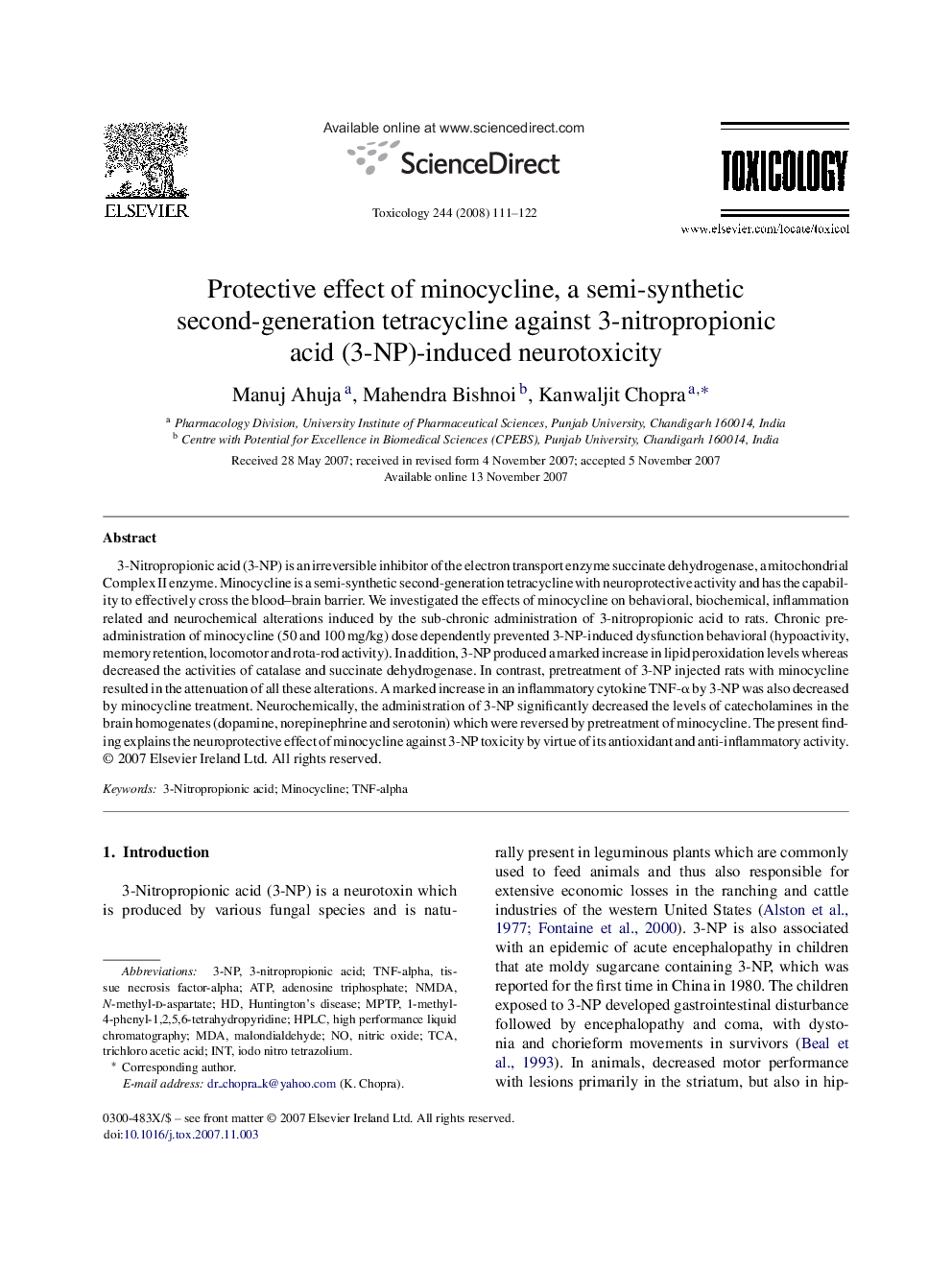| Article ID | Journal | Published Year | Pages | File Type |
|---|---|---|---|---|
| 2597098 | Toxicology | 2008 | 12 Pages |
3-Nitropropionic acid (3-NP) is an irreversible inhibitor of the electron transport enzyme succinate dehydrogenase, a mitochondrial Complex II enzyme. Minocycline is a semi-synthetic second-generation tetracycline with neuroprotective activity and has the capability to effectively cross the blood–brain barrier. We investigated the effects of minocycline on behavioral, biochemical, inflammation related and neurochemical alterations induced by the sub-chronic administration of 3-nitropropionic acid to rats. Chronic pre-administration of minocycline (50 and 100 mg/kg) dose dependently prevented 3-NP-induced dysfunction behavioral (hypoactivity, memory retention, locomotor and rota-rod activity). In addition, 3-NP produced a marked increase in lipid peroxidation levels whereas decreased the activities of catalase and succinate dehydrogenase. In contrast, pretreatment of 3-NP injected rats with minocycline resulted in the attenuation of all these alterations. A marked increase in an inflammatory cytokine TNF-α by 3-NP was also decreased by minocycline treatment. Neurochemically, the administration of 3-NP significantly decreased the levels of catecholamines in the brain homogenates (dopamine, norepinephrine and serotonin) which were reversed by pretreatment of minocycline. The present finding explains the neuroprotective effect of minocycline against 3-NP toxicity by virtue of its antioxidant and anti-inflammatory activity.
